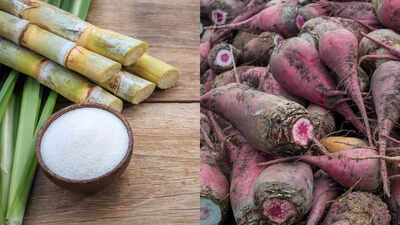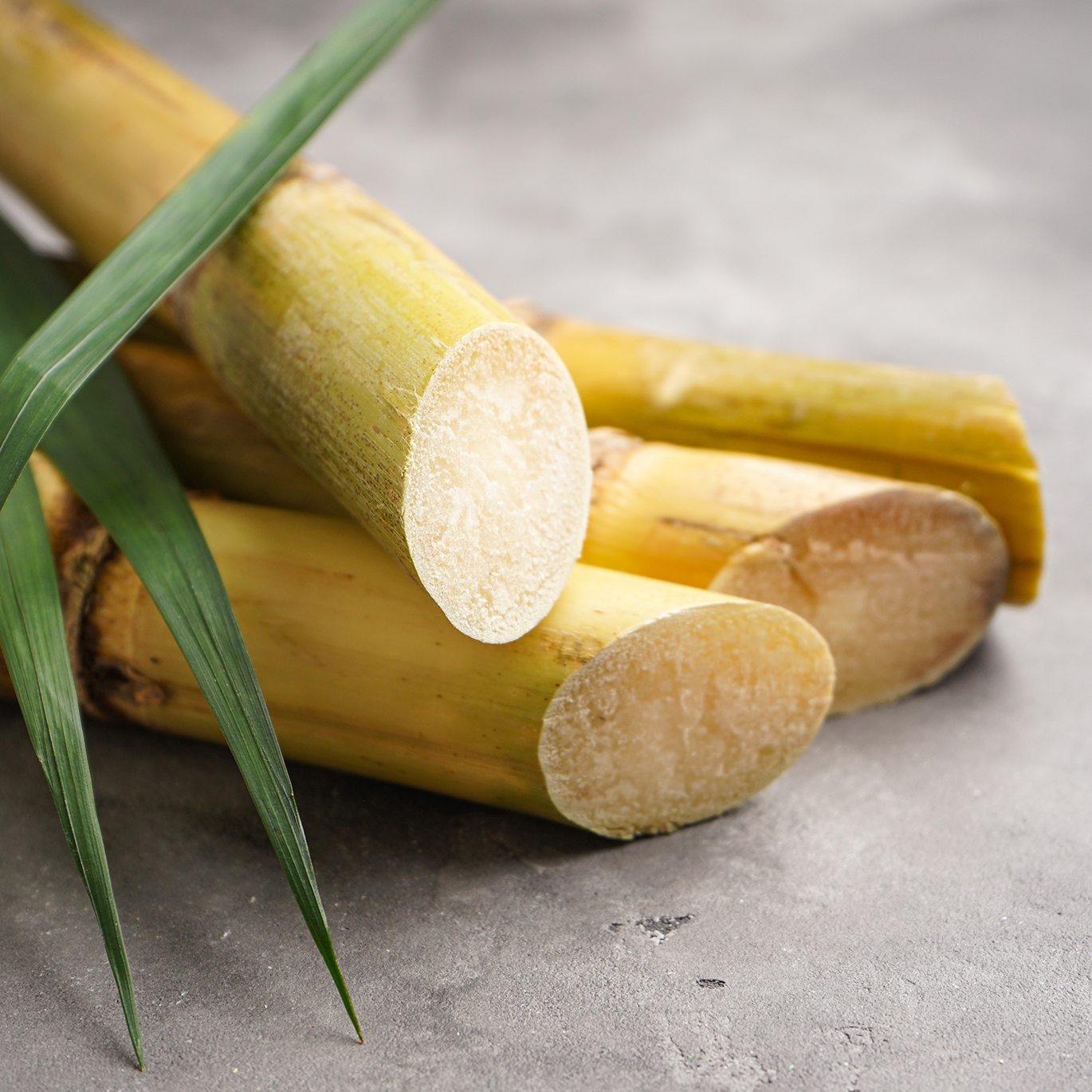Sugar beet vs sugar cane: Taste differences in cooking
Wiki Article
The Great Argument: Sugar Beet Vs Sugar Cane - Which Is the Superior Choice for Sweeteners?
The dispute over sugar beet versus sugar cane as the recommended sugar entails a number of essential variables. Each offers distinctive advantages and challenges pertaining to manufacturing, taste, and health and wellness implications. While sugar beet might interest those focusing on sustainability, sugar cane has its own social and cooking significance. As consumers end up being more mindful of their selections, the concern continues to be: which sugar genuinely stands out in today's market?The Beginnings of Sugar Beet and Sugar Cane
Sugar cane has been cultivated for thousands of years, mostly in tropical areas, sugar beet arised as a substantial alternative in cooler climates during the 18th century. Sugar cane, belonging to Southeast Asia, was first domesticated around 8000 BCE and spread globally with trade and expedition. Its high sucrose material made it an important plant, resulting in comprehensive haciendas in regions like the Caribbean and Brazil.On the other hand, sugar beet was first grown in the Mediterranean around the 18th century, specifically getting grip in Europe as an action to sugar cane lacks. The plant prospers in temperate environments, making it suitable for areas with chillier weather. The discovery that sugar could be extracted from beet roots revolutionized sweetener manufacturing, specifically during the Napoleonic Battles when profession limitations minimal cane sugar access. The surge of sugar beet growing marked a turning point in the background of sugar, supplying a neighborhood resource for several nations.
Manufacturing Processes: From Field to Sugar
The production procedures of sugar beet and sugar cane reveal significant distinctions in farming methods, gathering methods, and refinement phases. Understanding these nuances is essential for appreciating exactly how each crop adds to the overall sugar market. This contrast highlights the special features and challenges related to both resources of sweetness.
Cultivation Techniques Contrast
Cultivation methods for sugar beet and sugar cane reveal distinct methods that influence their production procedures, from area preparation to last sweetener extraction. Sugar beet farming commonly involves plowing and painful to develop a fine seedbed, adhered to by seeding in rows to help with growth. This plant take advantage of cooler climates and is often planted in springtime. On the other hand, sugar cane is typically planted in furrows with pre-sprouted cane pieces, requiring a cozy, tropical climate for excellent development. Cane fields are commonly laid out to handle water effectively, provided its need for substantial watering. Both crops are managed with details fertilizing and pest control methods customized to their growth settings, affecting yield top quality and performance in sweetener extraction.Collecting Methods Clarified
Effective harvesting techniques for sugar beet and sugar cane play a vital duty in ensuring optimal return and high quality of the last product. Sugar beet harvesting normally uses mechanical origin harvesters, which efficiently uproot the beets from the soil and separate them from the vegetation. This method minimizes damage to the beets and decreases labor costs. On the other hand, sugar cane harvesting might use either hands-on labor or equipment, depending on the region and scale of production. Mechanical farmers cut the cane at the base and frequently remove the fallen leaves, maximizing the process for larger fields. Both techniques call for mindful timing to assure the plants are gathered at peak sweet taste, affecting the quality of the last sweetener item.Refinement Process Differences
While both sugar beet and sugar cane undergo strenuous refinement processes to change their raw types right into functional sweeteners, the techniques used vary significantly. Sugar beet improvement begins with washing and cutting the beets right into thin cossettes, complied with by diffusion, where warm water extracts sucrose. The resulting juice is then detoxified, focused, and crystallized. On the other hand, sugar cane processing entails squashing the stalks to extract juice, which is after that cleared up making use of lime and heat to eliminate impurities. The cane juice is evaporated to form syrup before crystallization. Inevitably, while both procedures aim to generate white sugar, the distinctive techniques highlight the special characteristics of each resource and their implications for taste and pureness in the end product.Nutritional Profiles: What remains in Your Sugar?
The dietary accounts of sugar beet and sugar cane existing distinctive differences worth analyzing. This comparison consists of aspects such as caloric material, mineral and vitamin existence, and variants in glycemic index. Recognizing these aspects can provide insights into just how each sugar may impact general health and wellness.Calorie Material Contrast
Recognizing the calorie content of sugar beet and sugar cane is crucial for those mindful of their nutritional options. Both sugar mainly consist of sucrose, adding a comparable caloric worth. Generally, sugar beet contains roughly 387 calories per 100 grams, while sugar cane has regarding 390 calories per the very same amount. The small difference in caloric material might not considerably influence most diets; nonetheless, it is exceptional for those very closely checking their calorie consumption. Furthermore, both sugar resources give power yet do not have essential nutrients, making them largely sources of empty calories. Subsequently, individuals looking for healthier options may want to consider these variables when selecting between sugar beet and sugar cane as their favored sweetener.
Mineral and Vitamin Material
Calorie material offers only a component of the picture when examining sugar beet and sugar cane. Both resources of sugar vary substantially in their mineral and vitamin accounts. Sugar beets are remarkably abundant in important nutrients, consisting of potassium, magnesium, and iron. They additionally include little quantities of vitamins such as B6 and folate, adding to their nutritional value. In comparison, sugar cane supplies a different collection of benefits, containing calcium, phosphorus, and traces of B vitamins. While neither choice is a substantial source of vitamins and minerals compared to whole foods, sugar beetroots may have a slight edge as a result of their higher mineral web content. Ultimately, consumers looking for dietary gain from sweeteners should take into consideration these distinctions in profiles.Glycemic Index Differences
Glycemic index plays an essential role in assessing exactly how various sweeteners impact blood sugar level levels. Sugar beet and sugar cane show noteworthy differences in their glycemic reactions. Normally, sugar beet has a lower glycemic index contrasted to sugar cane, leading to a slower and steadier surge in blood sugar levels after usage. This quality may make sugar beet a more effective option for individuals managing diabetes mellitus or those looking for to preserve stable energy levels. In contrast, sugar cane tends to trigger an extra fast spike in blood sugar, which might result in quicker energy crashes. Recognizing these distinctions is considerable for customers aiming to make informed nutritional options pertaining to sweeteners and their influence on overall visit this site right here wellness.Environmental Influence: Sustainability Considerations
While both sugar beet and sugar cane are crucial sources of sugar, their ecological effects and sustainability considerations vary noticeably. Sugar beets, mostly expanded in temperate regions, normally require much less water and can be grown in diverse climates. They additionally profit from crop rotation techniques, which boost soil health and wellness and reduce the demand for synthetic plant foods. Nevertheless, extensive farming of sugar beets can result in dirt deficiency and pesticide usage.In comparison, sugar cane flourishes in tropical environments and frequently necessitates significant water resources for irrigation (Sugar beet vs sugar cane). The monoculture nature of sugar cane farming can exacerbate dirt disintegration and biodiversity loss. Additionally, the burning of cane fields before harvest launches carbon discharges and adds to air contamination. Both plants face obstacles related to environment modification, however their varying growing practices greatly affect their general sustainability profiles. The selection in between sugar beet and sugar cane involves evaluating these environmental influences meticulously.
Preference and Culinary Utilizes: Which Sweetener Reigns Supreme?
The selection between sugar beet and sugar cane expands past environmental considerations to incorporate preference and culinary applications. Sugar beet, often regarded as having a somewhat various Related Site flavor profile, has a tendency to be much less sweet than sugar cane. This refined distinction can affect its usage in dishes, especially in baked goods where a neutral sweet taste is wanted.Alternatively, sugar cane is celebrated for its distinctive, rich, and extra intricate taste, making it a preferred choice for drinks and treats - Sugar beet vs sugar cane. Its all-natural molasses material can enhance the deepness of flavors in different dishes
In food preparation, sugar cane's flexibility shines with in marinades, lusters, and confections, while sugar beet is frequently located in refined foods and sugar like granulated sugar. Eventually, the decision between the 2 sugar frequently rests on private taste choices and details culinary applications, with each offering distinct benefits in the cooking area.
Wellness Implications: Sugar Beet Vs Sugar Cane
Both sugar beet and sugar cane have unique wellness ramifications that can affect consumer selections. Sugar beet vs sugar cane. Sugar beet is frequently related to for its higher fiber web content, which can assist digestion health. Additionally, it consists of particular antioxidants that may add to general wellness. On the other hand, sugar cane is rich in nutrients such as calcium, potassium, and magnesium, providing some mineral benefitsBoth resources mainly consist of sucrose, which can lead to comparable wellness concerns when eaten excessively, such as weight problems, diabetes mellitus, and heart illness. The handling techniques also differ; sugar beet is usually improved much more intensively, potentially resulting in a loss of specific nutrients. Customers worried regarding additives may like sugar cane, as it commonly undertakes less handling. Ultimately, comprehending these health and wellness implications can guide people towards making notified choices regarding their sweetener choices.
Customer Preferences: Trends and Insights
Consumer choices for sugar have developed significantly in recent times, influenced by health and wellness fads, environmental problems, and dietary selections. Raised understanding of the negative wellness effects related to too much sugar usage has actually led lots of customers to seek choices. This change has motivated an expanding passion in natural sweeteners, with sugar beet and sugar cane going to the leading edge of conversations.Research study suggests that customers are significantly favoring sugar beet due to its perceived ecological benefits, as it is frequently grown closer to refining plants, decreasing transportation emissions. Conversely, sugar cane is typically linked with tropical areas and might carry perceptions of sustainability difficulties.

Often Asked Questions
Exactly How Do Sugar Beet and Sugar Cane Affect Blood Sugar Level Degrees?
Sugar beet and sugar cane both include sucrose, which can boost blood sugar levels. The effect mostly depends upon individual metabolic rate and consumption quantities, yet both sources contribute in a similar way to blood sugar actions in most situations.Which Sugar Is Better for Baking and Food preparation?
When assessing sweeteners for baking and food preparation, one should consider appearance, flavor, and dampness retention. Sugar beet and sugar cane both supply distinct high qualities, with sugar cane often preferred for its richer flavor account in cooking applications.Can Sugar Beet or Cane Be Made Use Of in Vegan Diets?
Both sugar beet and sugar cane can be made use of in vegan diets. They are plant-derived sweeteners, making them suitable for individuals looking for vegan-friendly choices important source without pet products, making sure moral options in their cooking methods.What Are the Historic Usages of Sugar Beet and Cane?
Historically, sugar beet and cane worked as important sources of sweet taste, with cane cultivated in exotic areas and beet in warm zones. Both have been integral to various cultures, economic situations, and cooking traditions throughout background.Are There Any Alternatives to Sugar Beet and Cane?
Alternatives to sugar beet and cane include agave nectar, honey, maple syrup, and man-made sugar like aspartame and sucralose. These alternatives use varying tastes and wellness benefits, appealing to varied dietary preferences and limitations.Report this wiki page